| Listing 1 - 10 of 59 | << page >> |
Sort by
|
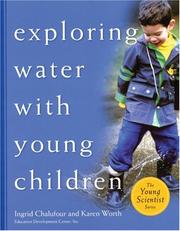
ISBN: 1605543160 1929610548 Year: 2005 Publisher: St. Paul, Minnesota : Redleaf Press,
Abstract | Keywords | Export | Availability | Bookmark
 Loading...
Loading...Choose an application
- Reference Manager
- EndNote
- RefWorks (Direct export to RefWorks)
Discover the science behind exploring and understanding water with young children.
Water --- Study and teaching (Early childhood) --- Experiments.
Book
ISBN: 2749262488 Year: 2019 Publisher: Toulouse (33 avenue Marcel Dassault 31500) : Érès,
Abstract | Keywords | Export | Availability | Bookmark
 Loading...
Loading...Choose an application
- Reference Manager
- EndNote
- RefWorks (Direct export to RefWorks)
Oui, dès la petite enfance, l'art et la culture contribuent au bien-être, au bien vivre-ensemble, à la prévention des inégalités et des discriminations ! Éveil artistique, démocratisation de la culture et inclusion riment bien ensemble, comme le montrent les expériences des auteurs à la crèche, au centre social, en bibliothèque, à l'école maternelle, chez l'assistante maternelle, au pied d'immeubles, au fond d'une vallée… Des professionnelles de la petite enfance, des formatrices, des étudiantes, des lectrices, des artistes et des parents se mobilisent pour favoriser l'accès au beau, au patrimoine, à la création, au monde. Et cela, chez tout un chacun, les tout-petits, leurs familles - d'ici et d'ailleurs -, les personnes âgées aussi, les plus isolées, démunies, exclues. Pour davantage d'égalité et d'humanité partout, et en particulier dans les territoires parfois oubliés. Les expériences dont il est question dans cet ouvrage ont été présentée lors de deux journées d'études initiées par l'association Le Furet, l'une avec l'association LIRE à Paris et l'autre avec l'association CLEA.
Book
ISBN: 2367173338 236717332X 2367173346 Year: 2016 Publisher: Paris : Dunod,
Abstract | Keywords | Export | Availability | Bookmark
 Loading...
Loading...Choose an application
- Reference Manager
- EndNote
- RefWorks (Direct export to RefWorks)
Neurosciences --- Science --- Research. --- Study and teaching (Early childhood)
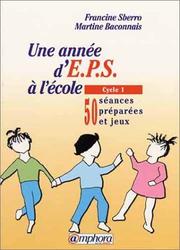
ISBN: 9782851806024 Year: 2002 Publisher: Paris : Ed. Amphora,
Abstract | Keywords | Export | Availability | Bookmark
 Loading...
Loading...Choose an application
- Reference Manager
- EndNote
- RefWorks (Direct export to RefWorks)
Book
ISBN: 3642257097 9786613939326 3642257100 128362687X Year: 2012 Publisher: Berlin ; Heidelberg : Springer-Verlag,
Abstract | Keywords | Export | Availability | Bookmark
 Loading...
Loading...Choose an application
- Reference Manager
- EndNote
- RefWorks (Direct export to RefWorks)
This collective book aims to encourage and inspire actions directed towards raising public awareness of the importance of mathematical sciences for our contemporary society in a cultural and historical perspective. Mathematical societies, in Europe and around the world, can find ideas, blueprints and suggestions for activities – including concerted actions with other international organizations – directed towards raising public awareness of science, technology and other fields where mathematics plays a strong role. The material is divided into four parts: • National experiences • Exhibitions / mathematical museums • Popularization activities • Popularization: why and how?
Mathematics -- Study and teaching (Early childhood). --- Mathematics. --- Mathematics --- Physical Sciences & Mathematics --- Mathematical Theory --- Study and teaching --- Math --- Mathematics, general. --- Science
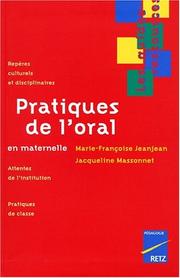
ISBN: 2725620171 Year: 2001 Publisher: Paris : Retz,
Abstract | Keywords | Export | Availability | Bookmark
 Loading...
Loading...Choose an application
- Reference Manager
- EndNote
- RefWorks (Direct export to RefWorks)
Book
ISBN: 3319239333 331923935X Year: 2016 Publisher: Cham : Springer International Publishing : Imprint: Springer,
Abstract | Keywords | Export | Availability | Bookmark
 Loading...
Loading...Choose an application
- Reference Manager
- EndNote
- RefWorks (Direct export to RefWorks)
This book presents chapters based on papers presented at the second POEM conference on early mathematics learning. These chapters broaden the discussion about mathematics education in early childhood, by exploring the debate about construction versus instruction. Specific sections investigate the teaching and learning of mathematical processes and mathematical content, early childhood teacher development, transitions for young children between home and preschool, between home and school and between preschool and school. The chapters use a range of innovative theoretical and methodological approaches which will form an interesting basis for future research in this area.
Education. --- Mathematics --- Mathematics Education. --- Learning & Instruction. --- Study and teaching. --- Study and teaching (Early childhood) --- Mathematics. --- Math --- Science --- Mathematics—Study and teaching . --- Learning. --- Instruction. --- Learning process --- Comprehension --- Education
Book

ISBN: 384741190X 3847405594 Year: 2017 Publisher: Leverkusen Verlag Barbara Budrich
Abstract | Keywords | Export | Availability | Bookmark
 Loading...
Loading...Choose an application
- Reference Manager
- EndNote
- RefWorks (Direct export to RefWorks)
Scientific contributions authored by distinguished experts from the field of early education are published periodically within the framework of the series Scientific Studies on the Work of the "Haus der kleinen Forscher" Foundation. This publication series serves to foster informed dialogue between the Foundation, scientists, and practitioners with the aim of giving all early childhood education and care centres, after-school centres, and primary schools in Germany scientifically sound support in fulfilling their early education mandate. This fifth volume in the series focuses on goals of science education at the level of the children, the early childhood professionals, and the pedagogical staff at after-school centres and primary schools, and on process-related quality criteria for science teaching at pre-primary and primary level. In their expert reports, Yvonne Anders, Ilonca Hardy, Sabina Pauen, Beate Sodian, and Mirjam Steffensky specify pedagogical content dimensions of the goals of early science education at pre-primary and primary school age. In addition to theoretically underpinning these goals, the authors present instruments for their assessment. In his expert report, Jörg Ramseger formulates ten quality criteria for science teaching. Early childhood professionals and pedagogical staff at after-school centres and primary schools can draw on these process-related criteria when planning lessons and conducting self-evaluations of science learning opportunities at pre-primary and primary level. The concluding chapter of the volume describes the implementation of these expert recommendations in the substantive offerings of, and the accompanying research on, the "Haus der kleinen Forscher" Foundation.
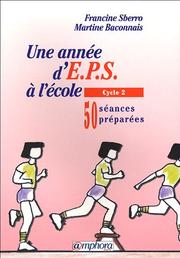
ISBN: 9782851804877 Year: 1998 Publisher: Paris : Ed. Amphora,
Abstract | Keywords | Export | Availability | Bookmark
 Loading...
Loading...Choose an application
- Reference Manager
- EndNote
- RefWorks (Direct export to RefWorks)
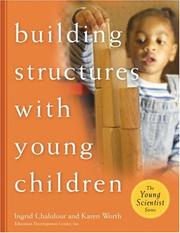
ISBN: 1929610505 Year: 2004 Publisher: St. Paul, Minn. : Redleaf Press,
Abstract | Keywords | Export | Availability | Bookmark
 Loading...
Loading...Choose an application
- Reference Manager
- EndNote
- RefWorks (Direct export to RefWorks)
Building --- Structural engineering --- Block building (Children's activity) --- Construction --- Technique de la construction --- Jeux de construction --- Study and teaching (Early childhood) --- Activity programs in education. --- Study and teaching (Early childhood) --- Activity programs in education --- Etude et enseignement (Première enfance) --- Méthodes actives --- Etude et enseignement (Première enfance) --- Méthodes actives
| Listing 1 - 10 of 59 | << page >> |
Sort by
|

 Search
Search Feedback
Feedback About UniCat
About UniCat  Help
Help News
News